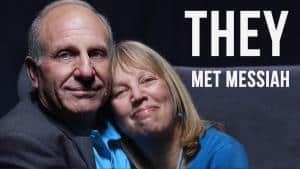Torah Portion for week 20: Exodus 27:20 – 30:10
תְּצַוֶּה
Tetzaveh (You shall command)
How can we approach a holy God? Our Torah portion this week continues God’s detailed revelation (begun in Exodus 25) of the plans for the tabernacle and its furnishings. In Exodus 27:20, our portion turns its attention to Aaron and his sons, who will serve as priests in the tabernacle. Chapter 28 describes in great detail the clothing of the priests, especially that of the high priest, Aaron. Chapter 29 then lays out the installation ceremony for Aaron and his sons, who are to be anointed with holy oil to signify their holy status – “set apart” for God and his service.
This entire description will be repeated in Exodus 35 – 39, showing that all of God’s plans were carried out completely and with great precision. But why this seemingly laborious attention to detail? In Exodus 29:43-46, God gives us the reason:
There [at the tabernacle] I will meet with the people of Israel, and it shall be sanctified by my glory. I will consecrate the tent of meeting and the altar. Aaron also and his sons I will consecrate to serve me as priests. I will dwell among the people of Israel and will be their God. And they shall know that I am the LORD their God, who brought them out of the land of Egypt that I might dwell among them. I am the LORD their God.
The entire book of Exodus leads to this climax, when the glory of the Lord will fill the tabernacle and God himself will dwell in the midst of his people (chapter 40).
The presence of a holy God demands a holy people, and the High Priest, in his unique sacred attire, will represent Israel before God as holy. As our Torah portion tells us:
So Aaron shall bear the names of the sons of Israel in the breastpiece of judgment on his heart, when he goes into the Holy Place, to bring them to regular remembrance before the LORD. . . . You shall make a plate of pure gold and engrave on it, like the engraving of a signet, “Holy to the LORD.” And you shall fasten it on the turban by a cord of blue. It shall be on the front of the turban. It shall be on Aaron’s forehead, and Aaron shall bear any guilt from the holy things that the people of Israel consecrate as their holy gifts. It shall regularly be on his forehead, that they may be accepted before the LORD. (Exod 28:29, 36-38).
How does this apply to us today? The Apostle Paul tells us, “Do you not know that your body is a temple of the Holy Spirit within you, whom you have from God? You are not your own, for you were bought with a price. So glorify God in your body” (1 Cor 6:19-20).
We are all painfully aware of how far short we fall from the holiness that God’s presence in us requires. But for this reason, all the more, we thank God for our “great high priest who has passed through the heavens, Yeshua, the Son of God” (Heb 4:14). He, “who through the eternal Spirit offered himself without blemish to God, [purifies] our conscience from dead works to serve the living God” (Heb. 9:14).
Relying on Yeshua’s holiness, we too can “draw near with a true heart in full assurance of faith, with our hearts sprinkled clean from an evil conscience and our bodies washed with pure water” (Hebrews 9:14). “Let us then with confidence draw near to the throne of grace, that we may receive mercy and find grace to help in time of need” (Heb. 4:16).






















